Why Track Days and Precision Driving Schools Are Worth It
Improve your driving skills on the street and on the track through professional instruction and practice.
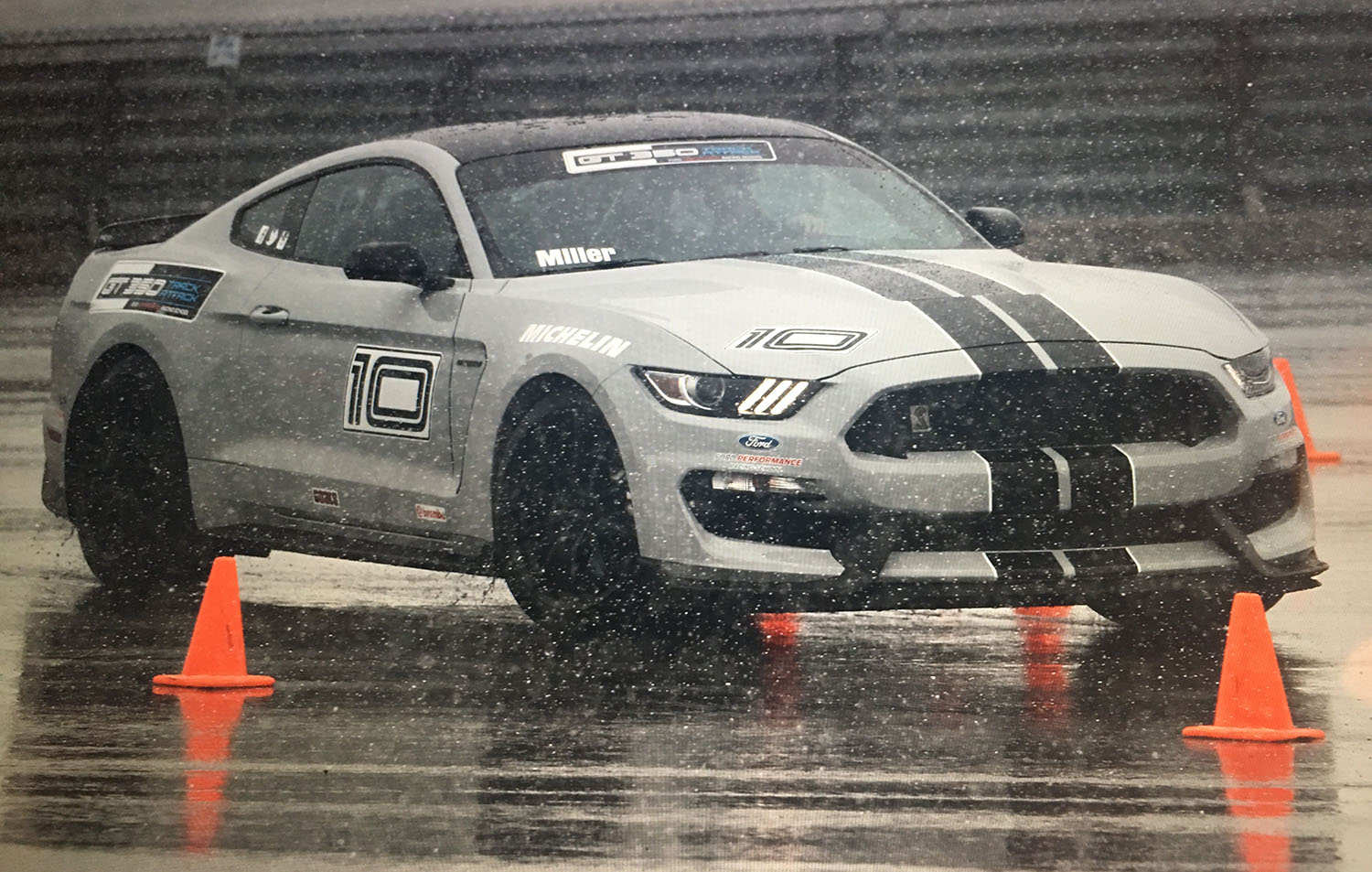 Aaron Miller | Capital One
Aaron Miller | Capital One
Whether you're drawn to the thrill of driving on a racetrack or simply want to feel more comfortable behind the wheel during your commute, attending a performance driving school or a track day can likely improve your car-related knowledge and driving skills no matter what your experience.
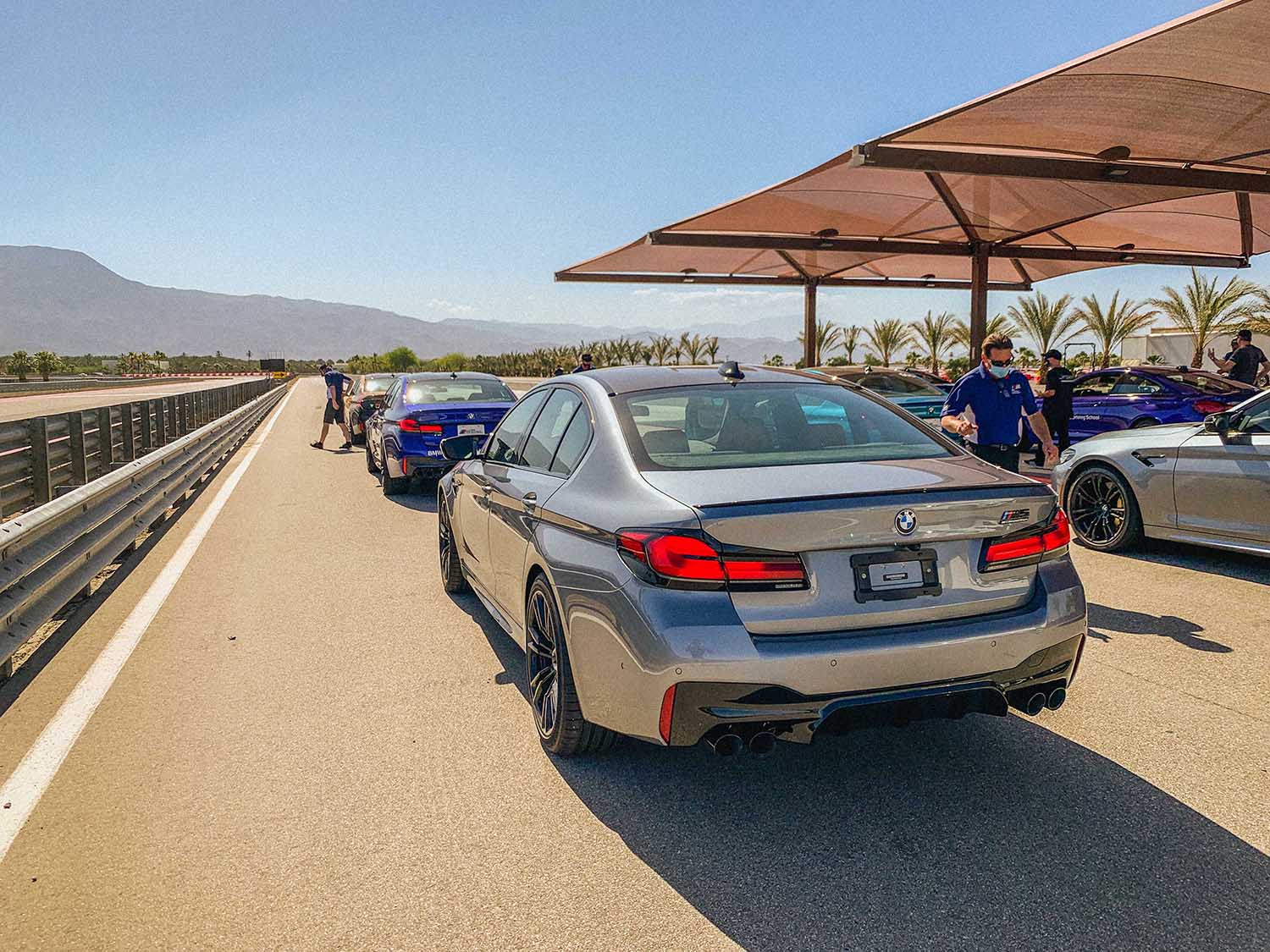 Manuel Carrillo III | Capital One
Manuel Carrillo III | Capital One
What is a precision driving school?
If you have a driver's license, chances are you've already attended driver's ed to learn how to operate a vehicle, along with the associated rules and laws of driving on the street. But a class of basic driver's education doesn't focus on vehicle dynamics or how to handle your car in an emergency situation.
The types of schools that do address those things are specialized driving schools, which are also known as — depending on their purpose — racing schools, performance driving schools, precision driving schools, or defensive driving schools. Some schools consist entirely of courses designed specifically for teens and new drivers to help them get familiar with vehicle handling. Then there are high-performance driving events (HPDE), advanced driving skills schools, and performance driving lessons, among others.
Most of the courses, particularly those focused on precision or performance driving, include class lessons on the physics and concepts involved with driving and controlling a vehicle at or past its limits of tire adhesion. After the classroom time, students get behind the wheel to apply those lessons, experiencing firsthand how to control the vehicle in many different circumstances, all in a controlled environment supervised by experienced instructors.
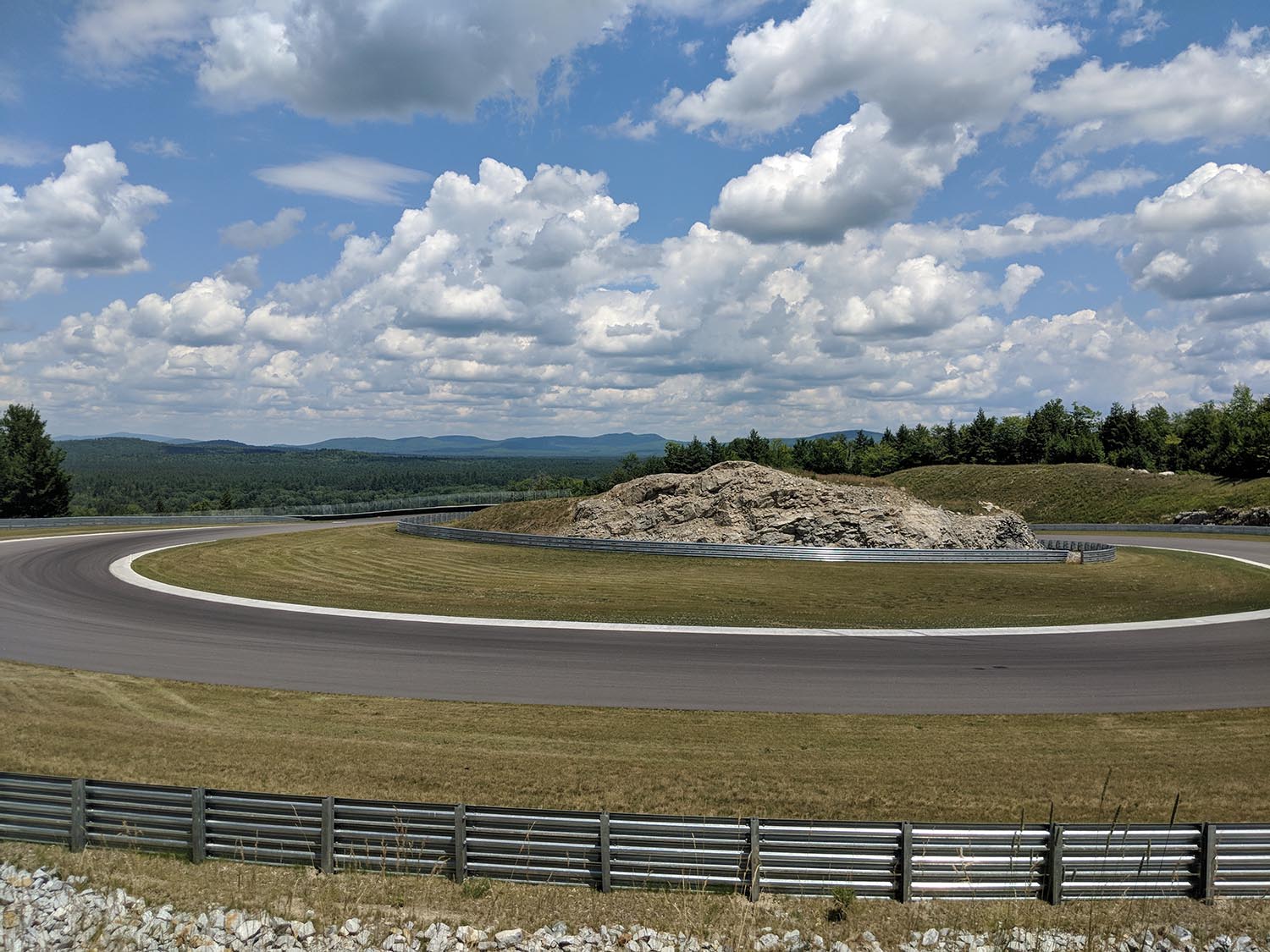 Aaron Miller
Aaron Miller
What is a track day?
A track day is where you bring your own vehicle (or rent one) and pay an entry fee to drive on a racetrack, which is typically a road course with a unique combination of left and right turns. There's no speed limit, all the cars go in the same direction, and the course is designed with safety in mind. Many people regularly attend track days as a hobby and to hone their high-performance driving skills with the goal of achieving faster lap times.
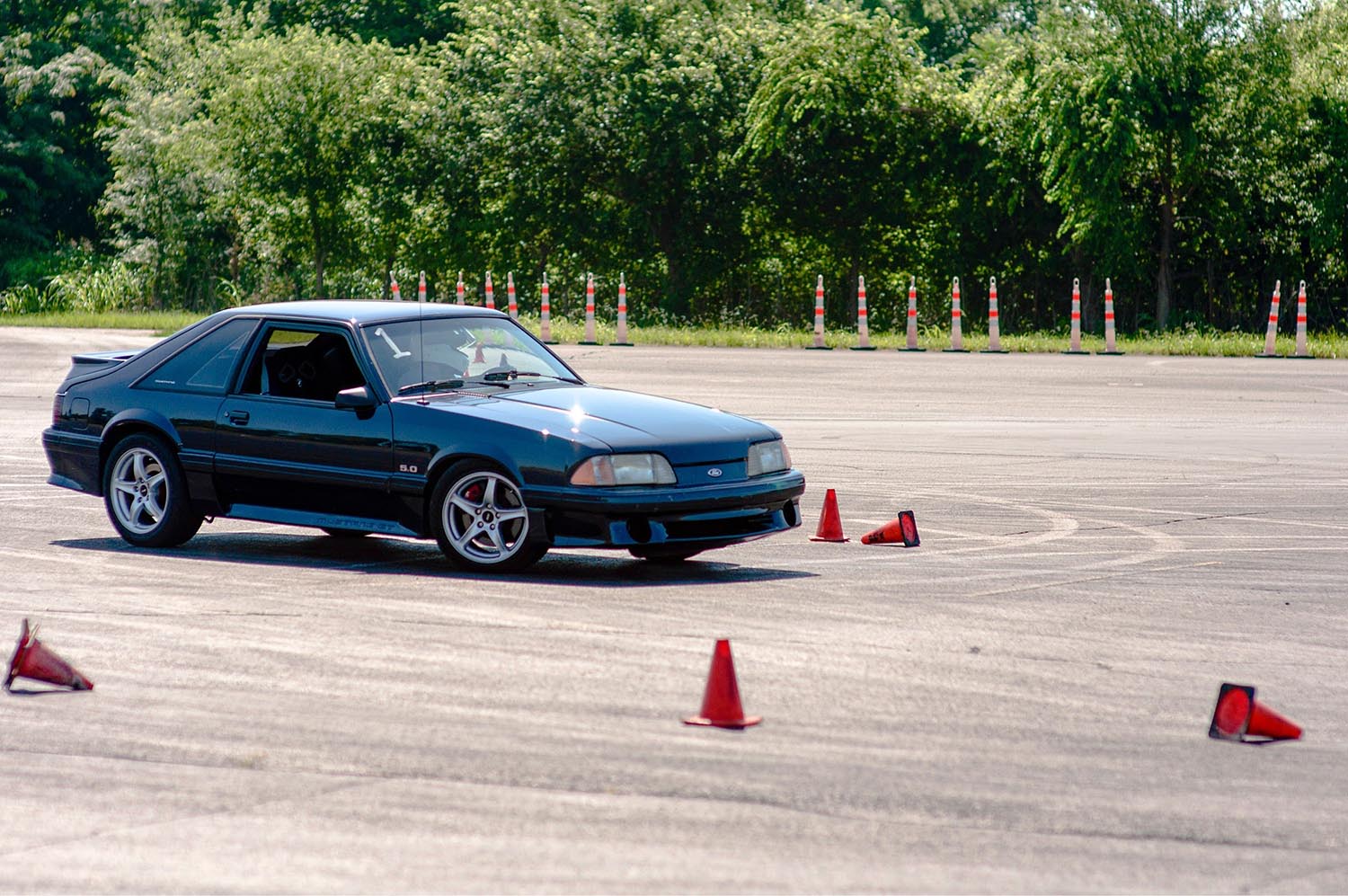 Aaron Miller
Aaron Miller
Why should I attend a precision driving school?
Whether you want to participate in track days or not, attending a driving school can make you more comfortable behind the wheel and a more confident driver on the street. Having a professional riding in the front passenger seat grants you instant guidance and feedback. It's a valuable experience that can help you feel more in control should an emergency situation arise on the road.
Even if you already have several track days under your belt, attending a driving school can be a smart idea. Go in with an open mind and a true willingness to learn, and you'll likely come out with advice that will sharpen your skills. Particularly for those who have some track experience, professional instruction can increase awareness of bad habits contributing to slower lap times.
While each driving school program offers its own curriculum, examples of things you might learn are:
- Collision-avoidance techniques such as emergency braking or an emergency lane change.
- Control and recovery skills when your vehicle's grip on the road is low or has been lost. This might include wet-surface braking, techniques for winter or bad-weather conditions, and how to avoid or control a skid.
- Situational awareness and the importance of keeping your eyes up and looking ahead. Time and space are your friends when you're behind the wheel, giving you a better chance to anticipate and react appropriately.
- How to read differing road surfaces, which can help you maintain control during wet or changing weather.
- Performance and racing schools in particular can teach you the proper way to drive on a racetrack, including skills such as how to recognize where to brake, how to take a racing line (the fastest path) through corners, how to perform race-style gear shifting, the correct footwork on the pedals, how to pass another vehicle during a race, and more.
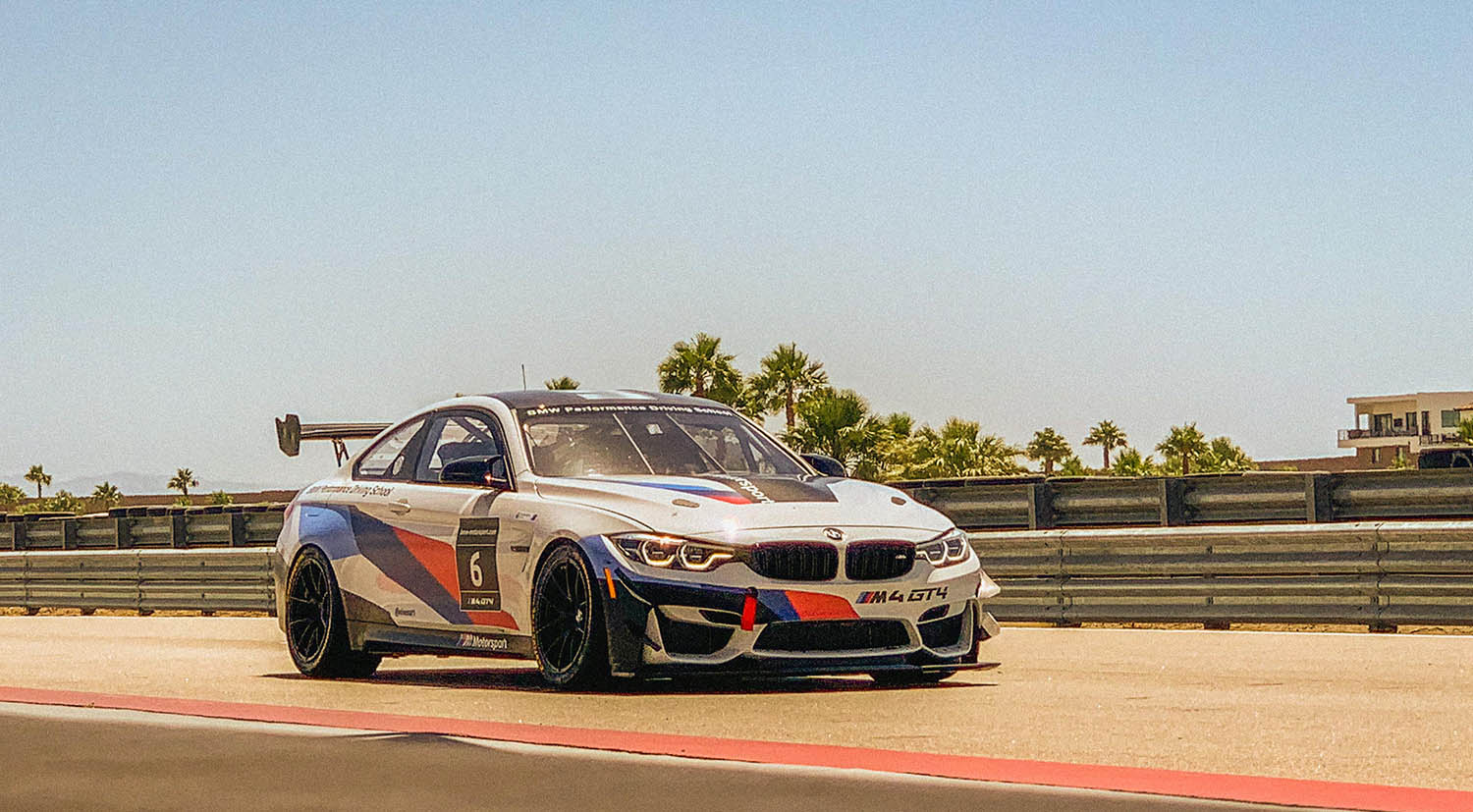 Manuel Carrillo III
Manuel Carrillo III
What are the benefits of driving at track days?
Driving a car on a track can be a hugely enjoyable and rewarding experience. It's a great place to legally drive to the limit of tire adhesion and also to practice, practice, practice that skill. The more you drive close, at, or past the limit, the more comfortable you can become behind the wheel, both on and off the track. Other benefits to track days include:
Gaining muscle memory. The more you practice, the more likely your car-control skills are to become second nature, which could help if you encounter an emergency situation on the street.
Situational awareness. Track driving requires you to constantly check the mirrors, know where other cars are, and plot where there is space for you. Doing this on the track also could be helpful when driving on the street — knowing where other cars on the road are at all times could help you avoid a crash.
Get ready to race. Track days can help prepare you to venture into competitive driving — including wheel-to-wheel racing, which is when cars race against one another on a track; the first car to complete the course or requisite number of laps wins.
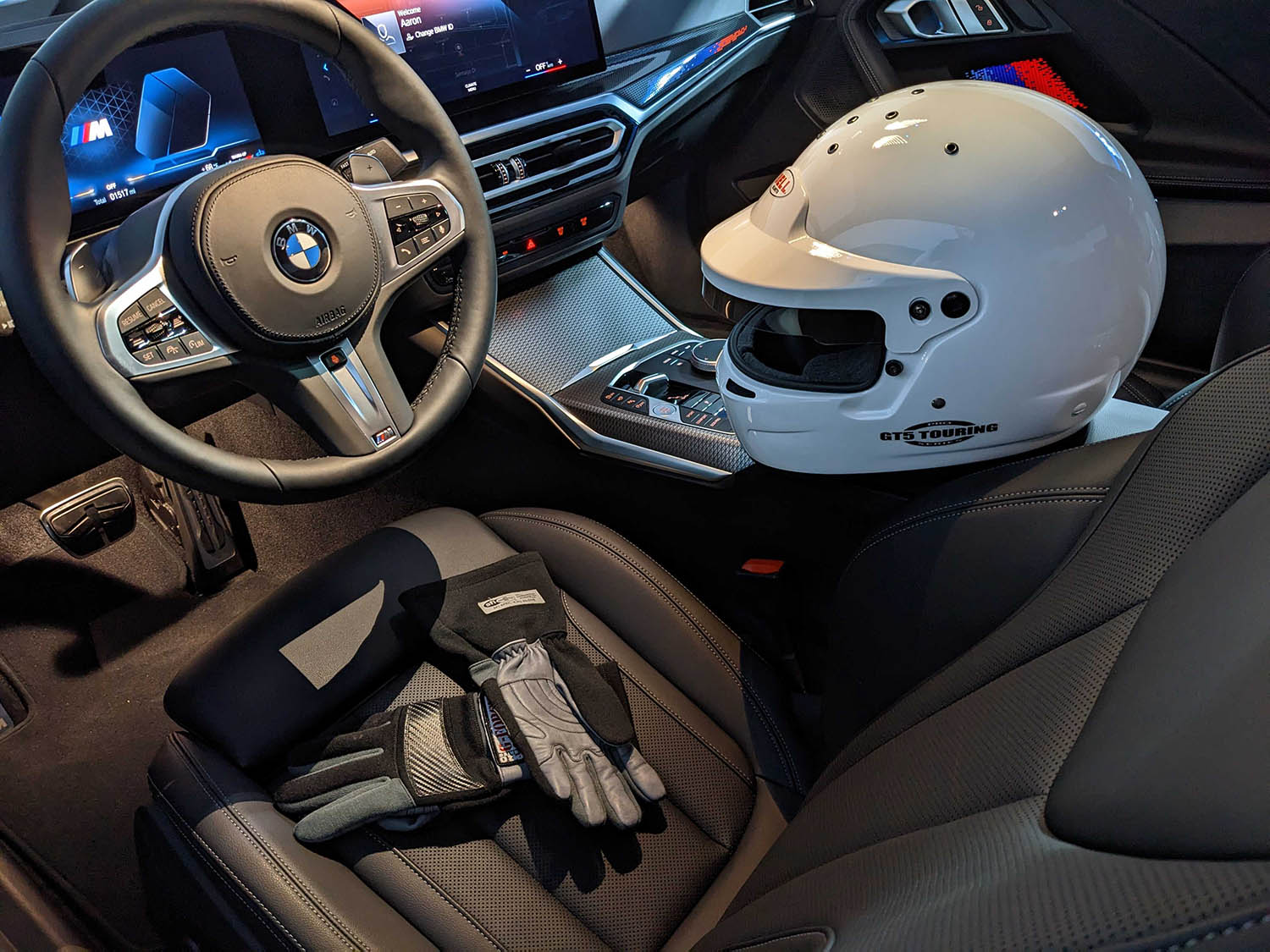 Aaron Miller
Aaron Miller
What does it cost and where can I find out more about driving schools and track days?
The cost of schools varies widely depending on length, type of school, number of students, and location. A single session of Teen Defensive Driving at the Mid-Ohio School (part of the Mid-Ohio Sports Car Course) costs about $400, whereas a three-day race-focused course at the Skip Barber Racing School is about $7,000. You can find a list of racings schools at the Sports Car Club of America's (SCCA) website.
The cost for a track-day event can vary significantly depending on the track and the operating organization. Prices can start around $200 per day for smaller tracks, while a day at the Circuit of the Americas in Austin (host to Texas' Formula 1 races) can run about $2,500 per person. Most tracks in the U.S. have a schedule of track days you can register for, but you can also start with the SCCA's page on track events for more information.
While the price for driving school might seem high, you could look at it as an investment in yourself. Knowing how to properly handle your vehicle could be the difference between getting into a crash and avoiding one. Plus, if you already participate in track days or intend to, the foundational skills taught in a driving school are a way to get the most out of all the time, effort, and money you put into going to the track.
Written by humans.
Edited by humans.
 Jon Yanca
Jon YancaTo say cars have been a lifelong passion for Jon Yanca would be an understatement. Obsession is probably more fitting. He brings over 15 years of automotive-industry experience spanning from top enthusiast publications, to advertising and marketing, to independent auto repair. When Jon is not writing about cars, you'll find him racing on dirt, pavement, and even ice, or with a wrench in hand maintaining his fleet of vehicles.
Related articles
View more related articles